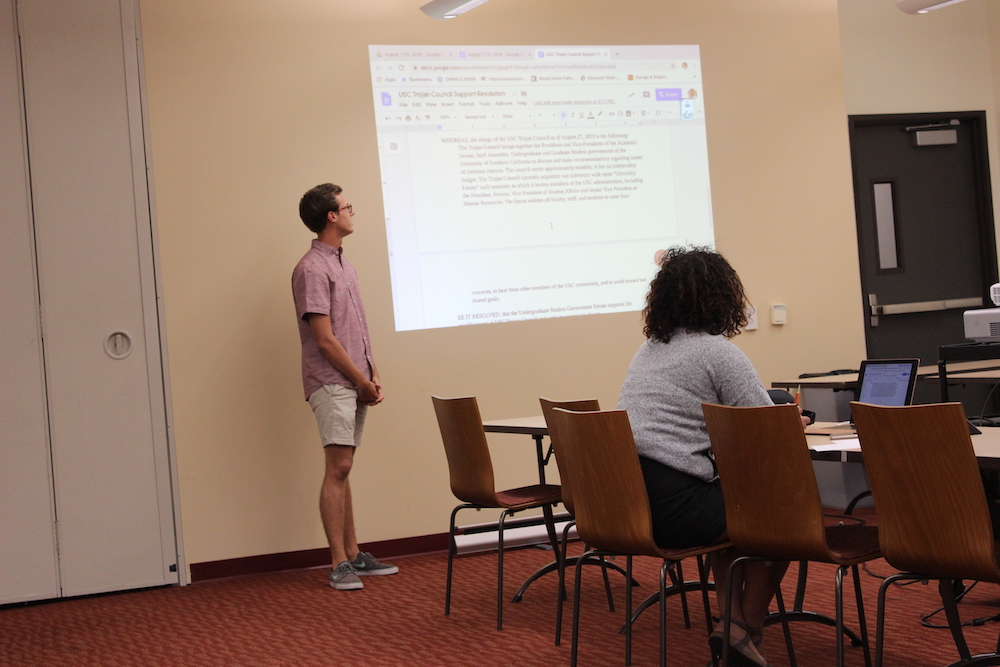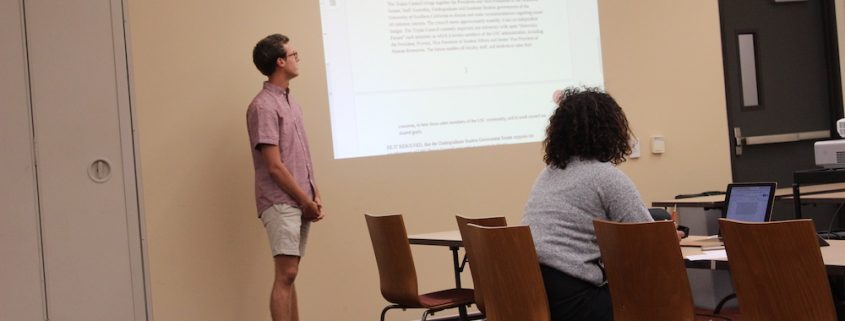University, student leaders to host semesterly forum to address community concerns

Undergraduate Student Government President Trenton Stone announced in a Senate meeting Tuesday that Trojan Council will host a University Forum open to students at the end of the semester.
Trojan Council, a group of four USC governing bodies, is currently in its formalizing stages and hopes to host its first ever University Forum at the end of the semester. Formed in 2017, Trojan Council is composed of Academic Senate, Staff Assembly, Graduate Student Government and Undergraduate Student Government. Formal objectives of the group include working with both students and administration to discuss campus issues in an effort to resolve them.
“We have a forum where people are allowed to ask questions, speak of issues that are affecting them or the community and really just raise issues and have a dialogue about it,” said Stone.
Previously, meetings with the Trojan Council were only open to the governing bodies’ presidents and vice presidents. While students could ask to present their concerns to the Council, both Stone and the USG Senate hope that the University Forum will provide more accessibility to students.
Although Trojan Council wasn’t previously institutionalized by USC or any of the participating groups, each governing body passed a resolution to reaffirm their organizational support. Stone hopes that the creation of the University Forum will help establish a lasting legacy for Trojan Council.
The University Forum will invite students, staff and faculty to attend a discussion with University President Carol Folt, Provost Charles Zukoski and Vice President for Human Resources Felicia Washington. This will allow students to have the space and resources to ask and resolve questions about issues affecting their community.
“Right now we’re planning that [forum] for later in the semester and then the other thing that we’re doing is just working on formalizing Trojan Council to make sure that it will stay long-term and to just really figure out of what the Trojan Council looks like,” Stone said.
The headline of this article was updated Aug. 28 at 9:20 p.m. to reflect the correct number of public meetings that will be held each semester.

